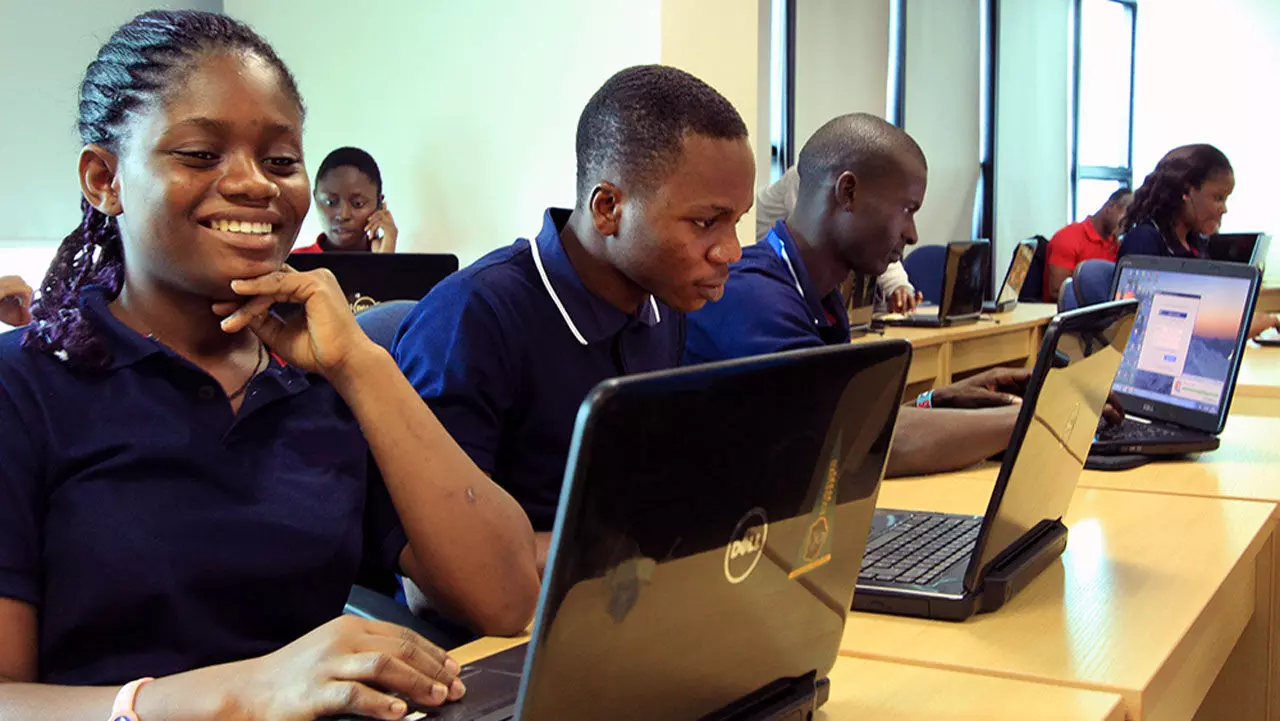- Home
- /
- More
- /
- Science & Technology
- /
- Experts urge African...
Experts urge African varsities to deepen digital education

African universities were on Friday urged to deepen their digital education and make it acceptable to their societies, to achieve desired impact on the society.
Dr Olivier Kuttel, Head of International Affairs of École Polytechnique Fédérale de Lausanne, EPFL, Switzerland, gave the advice in Abuja while delivering a keynote address at the 2022 African Centres of Excellence, ACE, Regional Conference.
The theme of the conference is "Sustainable Integration of Digital Education in the Post Covid-19 Era."
Supreme reports that the conference aims at addressing the issues of sustainable and efficient integration of digital technology in education.
The conference also allows exchange of good practices, developed within the centres of competence in digital education.
Kuttel said the biggest impact on digital transformation was COVID-19, adding that online teaching was key for his polytechnic to continue its academic programmes during the pandemic.
He, therefore, called on universities to go digital, taking into cognisance the society they served, adding that if the society did not accept digitisation of teaching, it would not work.
According to him, digital technology has a huge impact on education, research, innovation and the society.
He said with digital technology, they taught, did research, shared results and the impact would be felt by their society.
Earlier, the Executive Secretary of the National Universities Commission (NUC), Prof. Abubakar Rasheed, said the Commission had developed the blueprint for revitalising education in Nigeria.
He said that after the coming of corona virus, the commission realised it had to rethink its approach to the delivery of instruction by adopting sustainable Integration of digital education.
Rasheed said one of the blueprints was to carry out a comprehensive review of the curriculum, and after four years with over 1,200 academics involved,
He added that the NUC had successfully re-engineered the curriculum of universities.
He disclosed that a memo had been developed by the commission and sent to the Federal Executive Council (FEC) for approval, noting that the review included the unbundling of some courses.
According to him, Mass Communication has been unbundled into eight new degree programmes that will come on board.
He said that agriculture had also been unbundled into several degree programmes.
He said another committee was set up to develop curriculum on artificial intelligence, stressing that the innovations were due to interactions between the World Bank and the National Universities Commission.
He said for the first time in 20 years, Nigeria had received foreign students from several countries, and those from over 17 countries subscribed to one university alone, courtesy of the ACE programme.
Rasheed noted that the commission had developed 11 strategic goals for the university system and one of which was to deepen ICT in the instructions.
Prof. Rasheed Sanni, a representative of Africa Digital Education Network, ADEN, said digital sustainability could not have come at a better time than now that the COVID-19 pandemic had impacted education across the world.
Rasheed said that the current university system required digital education and online teaching to deliver quality education to students at all times.
He commended the World Bank and other partners for the support to universities in the country.
The Secretary-General, Association of African Universities (AAU), Prof. Olusola Oyewole, urged African universities to take steps toward achieving digital sustainability to close the educational gaps in the system.
Oyewole noted that as universities pursued sustainability of digital technology, an opportunity was created for the growth of a digital economy where digital skills could be learned, to put food on the table for citizens.
Prof. Umar Dambata, Executive Vice Chairman, Nigeria Communications Commission (NCC), stressed the need to ensure continuous learning in universities in spite of disruption caused by COVID-19.
He said education was the most powerful weapon to change society.
He said digital technology offered the opportunity for that change to take place.
Dambata, represented by the Head of Research at NCC, Mr Kelechi Nwankwo, said the commission's vision from 2021 to 2025 captured the need to encourage the procurement of new technologies.
The conference was organised with the aim of deepening education, stakeholders' understanding and participation in the digital education landscape.



